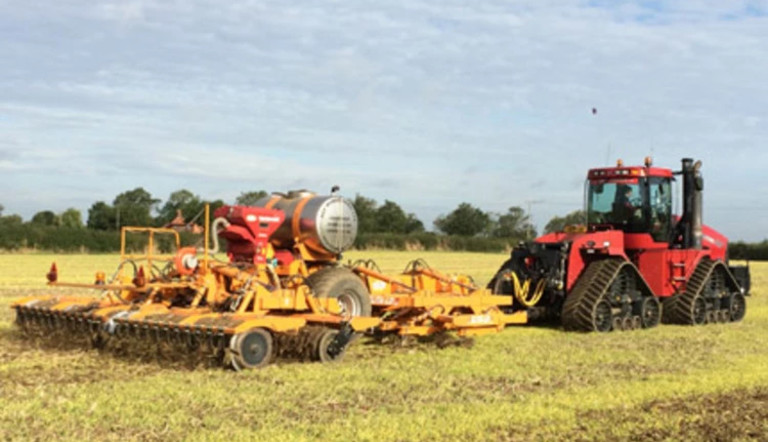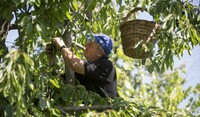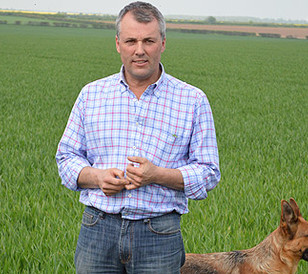
Early cultivation cuts pesticide resistance risk

Andrew grows sugar beet, oilseed rape and cereals at Roy Ward Farms’, 650-ha Glebe Farm, Leadenham, Lincolnshire - about 190km north of London.
At Glebe Farm the management plan is designed to avoid over-reliance on pesticides and is made up of a number of key components:
- Cultivation
- Spring cropping
- Variety choice
- Hand rogueing
- Higher Seed Rates
- Chemical control
Cultivation and Spring Cropping
The land at Glebe Farm is direct-drilled to ensure weed seeds remain buried at depth, reducing their viability.
There has also been a move towards spring-sowing to provide a fallow window for better weed control without relying on the heavy spray regimes associated with a winter crop. Four years ago winter wheat took up 45% of the farmed area whereas today it only occupies 20% of that area.
Andrew puts the success of growing spring sown crops on the farm’s heavy clay soil down to the timing of cultivations.
The norm on most farms is to carry out primary cultivations in late autumn which usually results in soil going into the winter unlevel and in a poor state. In comparison fieldwork at Glebe Farm, particularly on heavy soils, is mostly completed in August as a disc, tine and press combination follow the combine.
“Because the soil is worked while it is still dry we avoid compaction damage and so it goes into the winter in fantastic condition,” says Andrew. In the spring, the farm has a head start because the soil comes out of the winter in good condition allowing earlier access to take out any emerging weeds. This in turn means crops can be drilled sooner, maximising yields and making the spring-sown option more viable.
Variety choice
Choosing varieties with good disease hardiness rather than prioritising yield is also a key component in the resistance management strategy.
“Strong disease hardiness is essential in cutting over-reliance on pesticides and modern varieties combine this trait with good yields,” says Andrew.
Crop Varieties
- Winter wheats - Revelation and Skyfall 400 seeds/sqm
- Spring barley Irina 350 – 420 seeds/sqm
- Spring wheat Kilburn 520 seeds/sqm
- Oilseed rape V316 this is sown at LOW seed rates due to our establishment being so good. 25 – 45 seeds/sqm
Rotation
Three different rotations are run according to soil types across the farm.
Medium soil
Blackgrass populations fluctuate according to the conditions so the rotation is kept flexible.
Rotation – Two break crops - sugar beet and rape - are fixed.
Sugar beet is lifted early and if blackgrass is under control, a winter wheat is drilled, if not, a spring cereal is sown. Winter rape is then grown in year three. If the blackgrass is under control in the rape it is followed with winter wheat. If not, then a spring cereal is sown.
Heavy land
No winter cereals are grown due to dense blackgrass in the past but levels of the weed are decreasing.
Rotation - rape, spring barley, spring wheat/spring barley
Lighter soil
A relatively fixed rotation is used on the sandy soil where blackgrass is not such a problem
Rotation - sugar beet, spring malting barley, winter rape, winter wheat
Spray regime
The key in the spray regime is to minimise chemical use by acting early to prevent diseases getting a hold on the crop. The regime is also made up of several active ingredients with different modes of action to reduce the likelihood of resistance.
Hand rogueing
With the exception of rape, all crops are hand-rogued to reduce the reliance on a heavy spray regime.
Hand rogueing costs €27 to €220/ha. Total average cost (chemical and rogueing) €162/ha and 98% blackgrass control.
[This compares with other farmers’ typical spray-only control of up to €260/ha but possibly only 25% blackgrass control].
Image Gallery
Related Articles

Partnership that Grows Together: ADAMA Romania’s Collaborative Edge

How the Cazado® Launch Embodies Value Innovation

